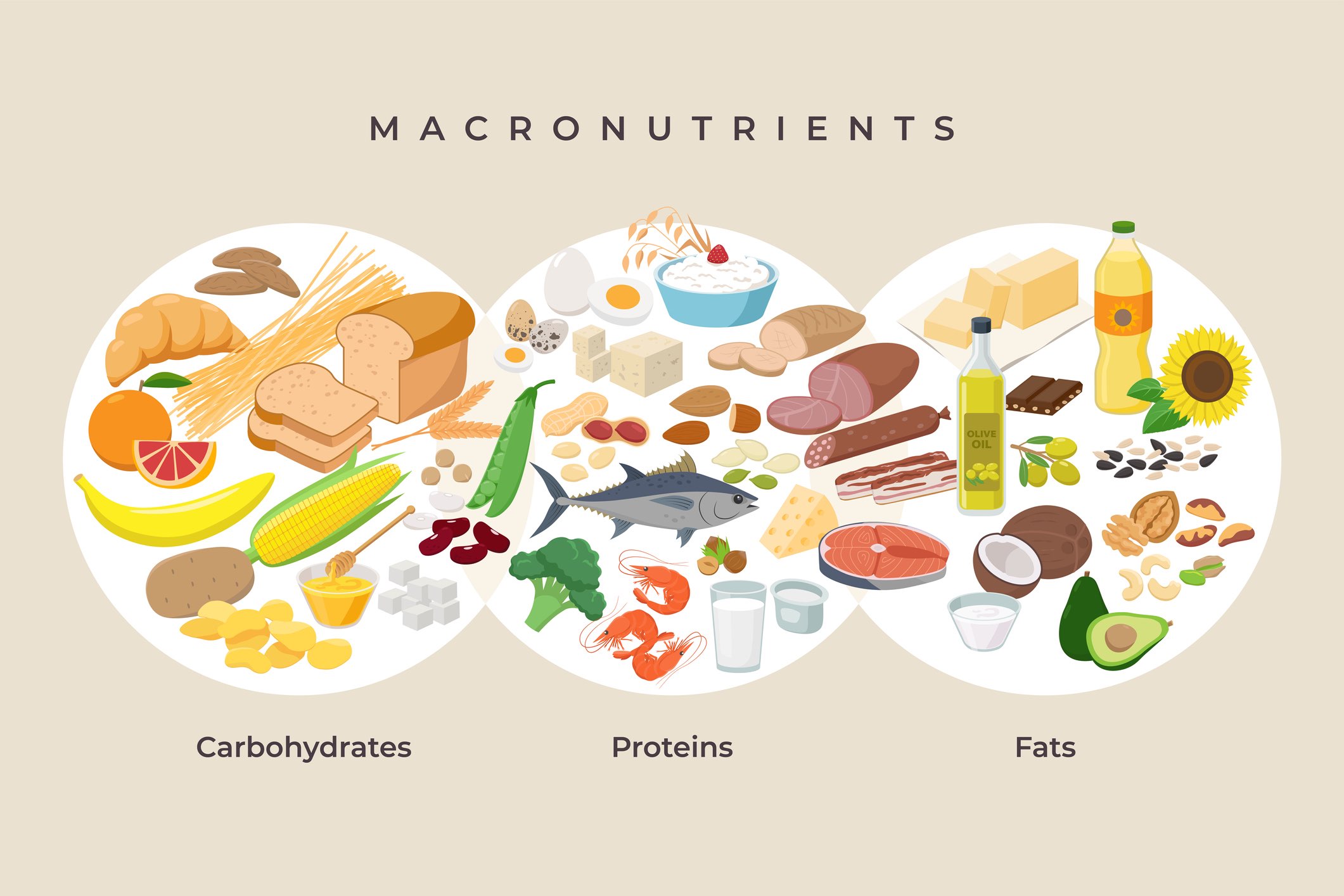When it comes to maintaining a healthy and well-balanced diet, understanding macronutrients is essential. Macronutrients are the three main components of our diet that provide us with energy and fulfill various vital functions in our bodies. By grasping the roles and sources of macronutrients, you can make informed food choices and create a nutritionally balanced diet that supports your overall well-being. In this blog, we’ll dive into the world of macronutrients, exploring their significance and guiding you toward a well-rounded understanding.
- What Are Macronutrients?
In this section, we’ll introduce macronutrients and explain their significance in our diet. We’ll delve into the three primary macronutrients: carbohydrates, proteins, and fats. Each macronutrient plays a unique role in our bodies and provides a different source of energy.
- Carbohydrates: The Body’s Preferred Fuel Source
Learn about carbohydrates, their functions, and their different forms. We’ll explore the importance of complex carbohydrates, such as whole grains and vegetables, for sustained energy levels and optimal bodily functions. Additionally, we’ll discuss the impact of simple carbohydrates and sugar on our health.
- Proteins: The Building Blocks of Life
Discover the critical role proteins play in our bodies. We’ll discuss their involvement in tissue repair, enzyme production, and immune function. You’ll gain an understanding of complete and incomplete protein sources, as well as the importance of including a variety of protein-rich foods in your diet.
- Fats: Essential for Health
Uncover the truth about dietary fats. We’ll explore the different types of fats, including saturated, unsaturated, and trans fats, and discuss their effects on our health. You’ll learn which fats to prioritize, how to incorporate healthy fats into your meals, and why they are crucial for nutrient absorption and hormone production.
- Balancing Macronutrients for Optimal Nutrition
Discover the importance of balancing macronutrients in your diet. We’ll discuss the concept of macronutrient ratios and how they can vary based on individual needs and goals. You’ll gain insights into determining the right balance of carbohydrates, proteins, and fats to support your overall health and well-being.
- The Role of Macronutrients in Weight Management
Understand how macronutrients impact weight management. We’ll discuss the relationship between macronutrient intake and energy balance, as well as the influence of different macronutrients on satiety and cravings. You’ll learn how to create a macronutrient balance that supports your weight goals.
- Adjusting Macronutrients for Special Dietary Needs
Explore how macronutrient needs may differ based on specific dietary requirements or health conditions. We’ll touch upon topics such as vegetarian or vegan diets, ketogenic diets, and managing macronutrients for individuals with diabetes or other health concerns. Understanding these considerations will help you tailor your diet to your unique needs.
Conclusion:
Macronutrients are the foundation of a well-balanced diet, providing the energy and essential components our bodies require to function optimally. By understanding the roles and sources of carbohydrates, proteins, and fats, you can make informed decisions about your dietary choices and create a nutritionally balanced eating plan. Remember, a well-balanced diet is about incorporating a variety of macronutrients in appropriate proportions to support your overall health and well-being.
